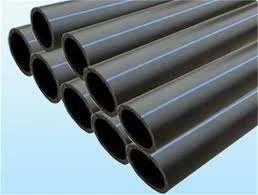វិច្ឆិកា . 13, 2024 00:16 Back to list
pvc pipe drip irrigation
PVC Pipe Drip Irrigation A Sustainable Solution for Agriculture
Drip irrigation has emerged as one of the most efficient methods of watering plants, providing precise amounts of water directly to their roots. Among the various materials used in drip irrigation systems, PVC (polyvinyl chloride) pipes have gained prominence due to their durability, affordability, and ease of installation.
One of the key advantages of using PVC pipes for drip irrigation is their resistance to corrosion and chemical damage. Unlike metal pipes that can rust and degrade over time, PVC pipes maintain their integrity, ensuring a long lifespan. This durability makes them an ideal choice for both permanent and semi-permanent irrigation systems.
PVC Pipe Drip Irrigation A Sustainable Solution for Agriculture
The efficiency of drip irrigation using PVC pipes is noteworthy. Traditional flood irrigation methods often lead to significant water waste due to evaporation and surface runoff. In contrast, drip irrigation minimizes these losses by delivering water directly to the root zone, ensuring that plants receive consistent moisture levels. This targeted approach not only enhances crop yields but also conserves water, which is increasingly important in regions facing water scarcity.
pvc pipe drip irrigation

Installation of PVC pipe drip irrigation systems is relatively straightforward. Farmers can set up their systems with basic tools and minimal labor. The process typically involves laying out the PVC pipes throughout the field and connecting them to a water source. Emitters are then installed at regular intervals along the pipes to control the flow of water. This simplicity makes drip irrigation accessible to small-scale farmers, empowering them to adopt more efficient agricultural practices.
Furthermore, the economic benefits of PVC pipe drip irrigation cannot be overlooked. While the initial investment may be higher than conventional irrigation methods, the long-term savings on water and maintenance create a favorable return on investment. Crops irrigated through PVC drip systems tend to require less water, which translates to lower utility bills. Additionally, increased crop yields often lead to higher profits for farmers.
In addition to its practical advantages, PVC pipe drip irrigation promotes environmental sustainability. By conserving water and enhancing crop production, this irrigation method helps combat climate change and supports biodiversity. The reduced use of chemicals associated with excess water runoff also contributes to healthier soil and ecosystems.
In conclusion, PVC pipe drip irrigation stands out as an effective, economical, and sustainable solution for modern agriculture. Its durability, efficiency, and adaptability make it an attractive choice for farmers striving to optimize their water use while increasing crop yields. As water scarcity continues to challenge agricultural practices worldwide, adopting PVC pipe drip irrigation systems may prove essential for fostering sustainable farming and ensuring food security for future generations.
-
HDPE Natural Sheet: Durable, Food-Grade & Versatile Plastic Solutions
NewsAug.27,2025
-
Durable Glossy PVC Rigid Sheet | Premium High-Shine Panels
NewsAug.26,2025
-
Durable PP Rigid Sheet: Lightweight, Chemical Resistant Solutions
NewsAug.21,2025
-
PVC Grey Sheet for Extraction: Chemical Resistant & Durable
NewsAug.19,2025
-
Durable PVC Pipe Fittings for Plumbing & Irrigation Needs
NewsAug.18,2025
-
HDPE Steel Belt Reinforced Spiral Corrugated Pipe | High Strength
NewsAug.17,2025

